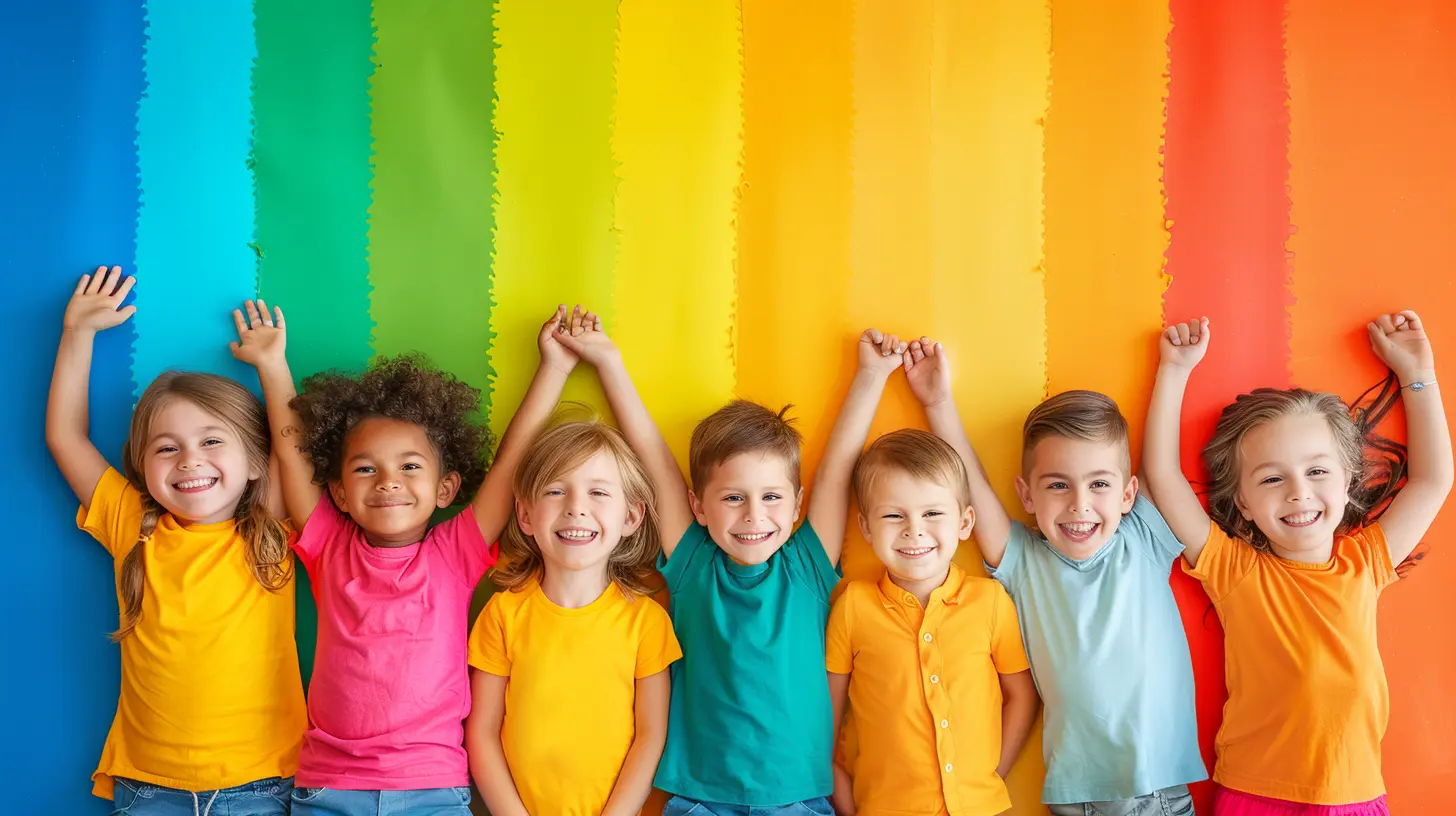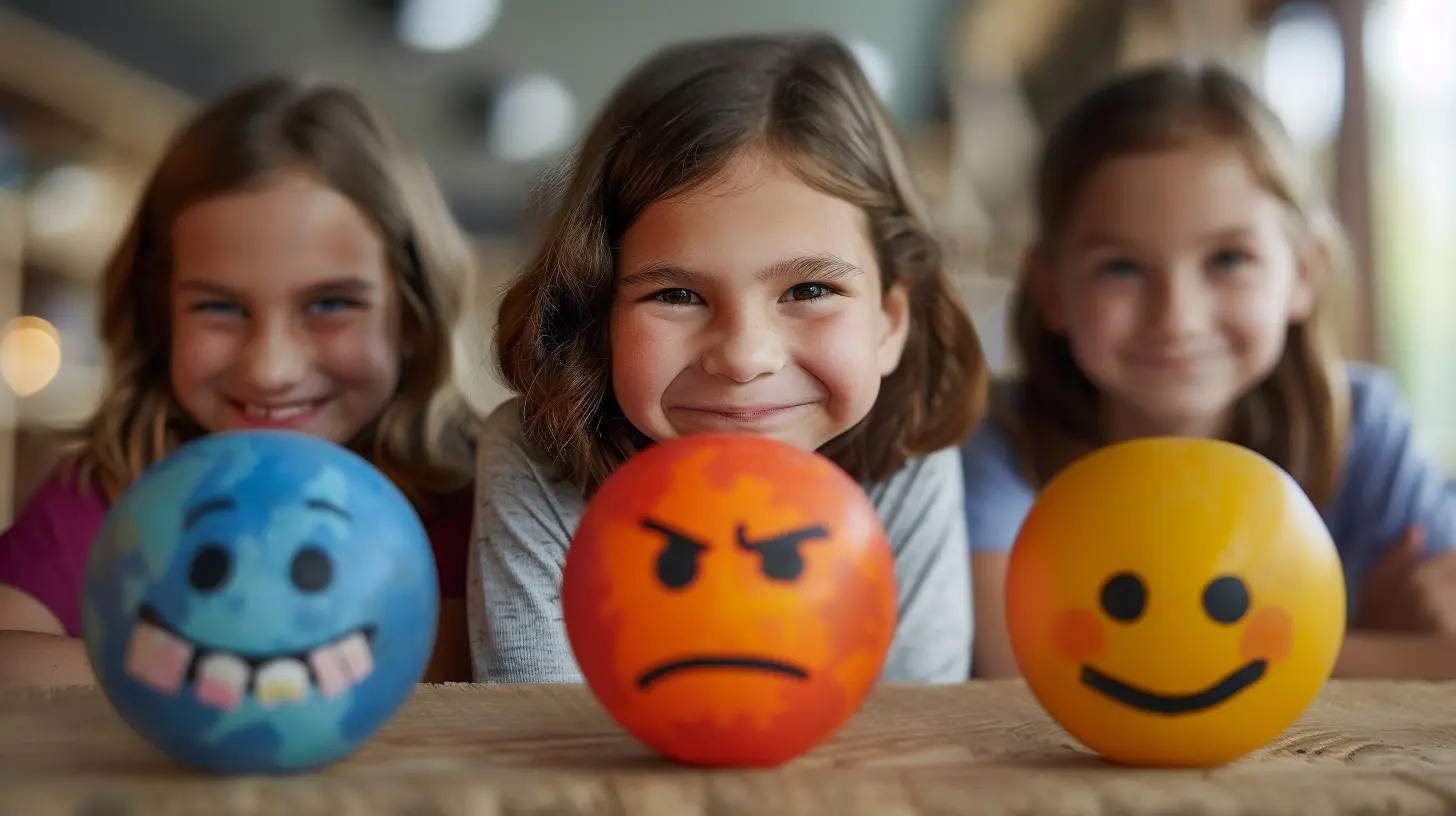The Link Between Emotional and Social Success for Children
16 November 2025
Raising kids is no walk in the park, right? Between the tantrums, the growing independence, and all the little milestones in between, we, as parents, often find ourselves wondering what it really takes for our little ones to thrive. And not just academically, but emotionally and socially too. So, let’s talk about something super important: the link between emotional and social success for children.
You’ve probably heard a bunch about “emotional intelligence” or “social skills,” but how do they actually work together? And why does it matter for your child's overall well-being and future success? Stay with me—we're going to unpack all of this and more.
What Is Emotional Success, Really?
First, let’s define emotional success. It's not about your child being happy all the time (spoiler: that's not realistic). Emotional success is about understanding, expressing, and managing emotions effectively. It’s about dealing with frustration without lashing out, handling anxiety before a school play, or even learning to bounce back from failure. Think of it as your child’s emotional toolbox.Now, imagine your kid has a well-stocked toolbox—they know what they’re feeling and why, and they’ve got strategies to cope. That right there is emotional success.
What About Social Success?
Social success is your child’s ability to build healthy relationships, communicate well, and navigate different social settings. Whether it’s playing nicely on the playground, resolving conflict with a friend, or sharing toys without a meltdown—these are all signs of strong social skills.Social success doesn't mean being the most popular kid in the class. Instead, it’s about being socially competent, empathetic, and kind. These are qualities that help children build meaningful relationships and feel connected to others.
Why Emotional and Social Skills Go Hand in Hand
Here’s where it gets really interesting. Emotional and social skills are deeply intertwined. When kids can manage their emotions, they usually have an easier time interacting socially. Why? Because emotional self-regulation leads to better communication, empathy, and conflict resolution.Picture this: A child who gets angry easily might struggle to keep friends. But a child who understands their anger and deals with it calmly is more likely to build positive relationships. See what I mean?
So in short, emotional intelligence feeds social intelligence. One strengthens the other.
The Long-Term Benefits of Emotional and Social Success
Want to give your child a leg up in life? Spoiler alert: It’s not just about straight A’s. Emotional and social skills contribute massively to everything from academic achievement to career success and mental well-being.Let’s break this down:
- Academic Performance: Kids who can manage stress and frustration are better equipped to focus in class and participate actively.
- Better Relationships: Empathy and communication lead to stronger friendships and partnerships later in life.
- Career Readiness: Employers love so-called “soft skills”—teamwork, communication, adaptability—all of which stem from emotional and social learning.
- Mental Health: Children who can express and regulate emotions are less likely to suffer from anxiety, depression, or behavioral issues.
Honestly, these are life skills we all need, no matter our age.
How Parents Can Support Emotional and Social Development
You’re probably wondering, “Okay, this is great, but how do I actually help my child build these skills?” Good news—you’re already part of the solution.1. Be an Emotional Role Model
Kids watch us like hawks. If we stay calm in traffic or talk through our feelings after a tough day, they start to pick up on that. Your reactions—both big and small—teach your child how to respond to their own emotions.Try this: Next time you're upset, narrate your experience out loud. Say, “I’m feeling really stressed because there's so much to do—but I’m going to take a deep breath and make a list. That usually helps me.”
It's simple, but powerful.
2. Teach Feelings like ABCs
Don’t assume your child knows the words for what they’re feeling. Just like we teach them the alphabet, we can teach them a vocabulary for emotions. Use books, flashcards, or real-life scenarios to identify feelings. “You look frustrated that your tower fell—want to try again together?”Naming emotions makes them less scary and easier to handle.
3. Create a Safe Space for Expression
Let your child know it’s okay to feel all kinds of emotions—happy, sad, angry, scared. What matters is what they do with those feelings.Encourage open conversations. “How was your day?” shouldn’t be a routine question. Mix it up: “What was the best part of your day?” or “Did anything happen that made you upset?”
Get curious, not judgmental.
4. Practice Problem-Solving Together
Instead of jumping in to solve every little issue (I know, I know—it’s hard not to), guide your child through the process.For example: Your child is upset their friend won't share a toy. Ask, “What could you say to them?” or “What are some ways you two can play together?” It helps them build conflict resolution skills on their own.
5. Encourage Playdates and Group Activities
Social skills blossom in social settings. Whether it’s a sports team, a music class, or just neighborhood play, give your child lots of chances to interact with peers.They’ll learn to take turns, share, cooperate, and even argue. Yep, even conflict teaches important social lessons—like compromise and empathy.
The Power of Empathy: The Heart of It All
If there's one emotional skill that underpins social success, it’s empathy. It's the ability to put yourself in someone else’s shoes, and honestly, it's a game-changer.Empathy helps your child understand others’ feelings, respond kindly, and build deeper connections. And yes—it can be taught.
Model empathetic behavior by showing concern for others, asking questions like, “How do you think your friend felt when that happened?” and praising acts of kindness.
Empathy builds bridges, even on the toughest playgrounds.
Red Flags to Watch For
All kids grow at their own pace, but here are a few signs your child may need extra support:- Struggles to make or keep friends
- Frequent emotional outbursts or shutdowns
- Avoids group settings or cooperative play
- Has trouble understanding others’ feelings
- Shows little emotional awareness ("I don’t know why I’m upset")
If these behaviors persist, consider talking to your pediatrician, teacher, or a child therapist. Early intervention works wonders.
Emotional and Social Learning in Schools
Good news—many schools are now integrating Social Emotional Learning (SEL) programs into classrooms. These programs teach kids how to recognize emotions, empathize, make decisions, and manage relationships—all crucial life skills.Ask your child’s teacher or school counselor about what’s being taught and how you can reinforce it at home. Teamwork between parents and educators is golden.
Final Thoughts: Raising Emotionally and Socially Savvy Kids
Look, parenting isn’t about being perfect. It’s about being present.By nurturing your child’s emotional and social development, you’re giving them more than just a head start—you’re giving them wings. Remember, it’s not about raising the smartest kid in the room. It’s about raising a kind, resilient, and emotionally intelligent human being.
So let’s keep talking about feelings, encouraging connection, and teaching empathy—because these are the tools that shape not just successful children, but compassionate adults.
You’ve got this. And so do they.
all images in this post were generated using AI tools
Category:
Emotional IntelligenceAuthor:

Zelda Gill
Discussion
rate this article
1 comments
Freya Morrow
Emotional skills: the foundation for social triumph!
November 17, 2025 at 5:46 PM

Zelda Gill
Absolutely! Emotional skills are crucial for children's social success, enabling them to build strong relationships and navigate social situations effectively.


